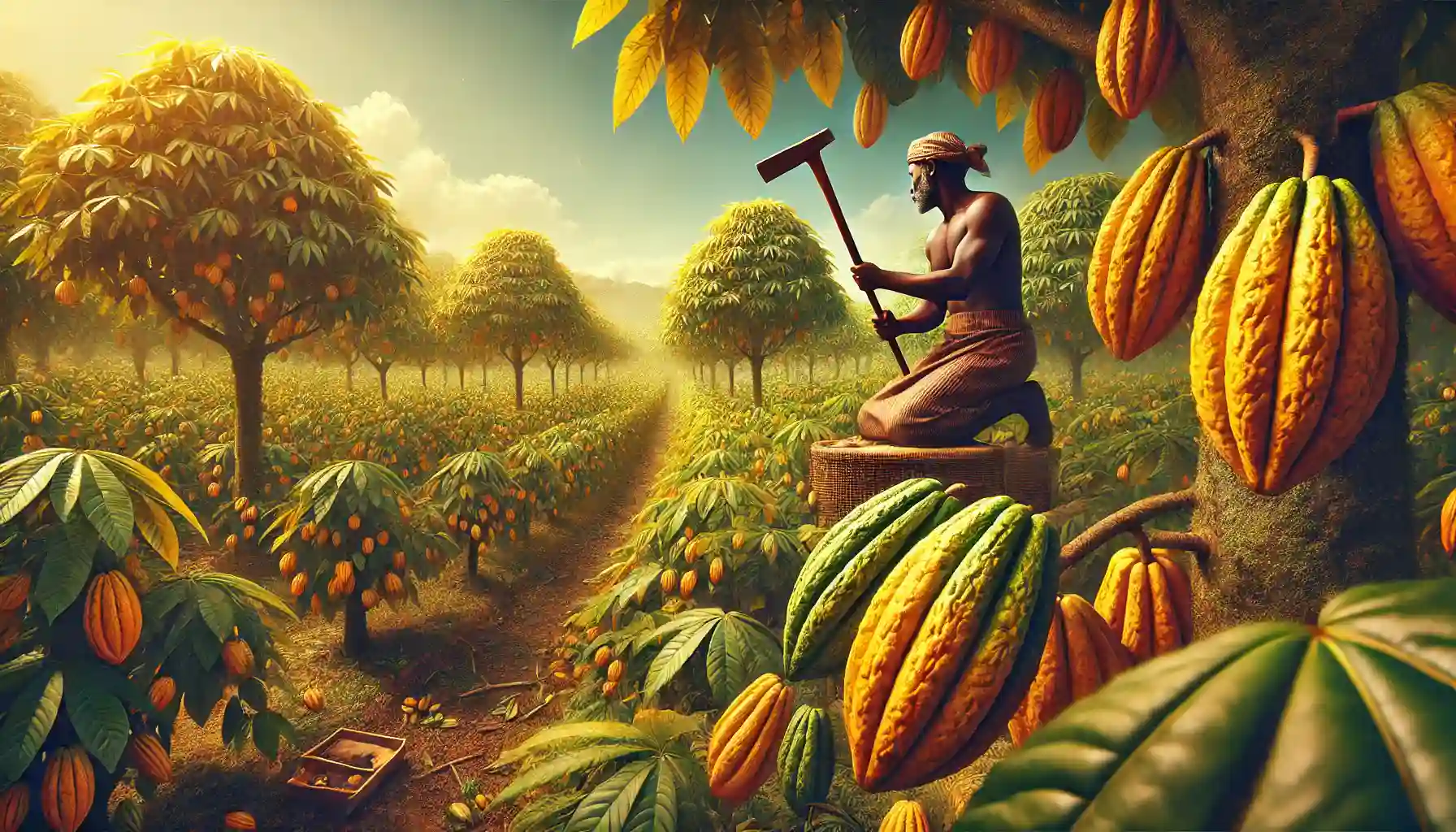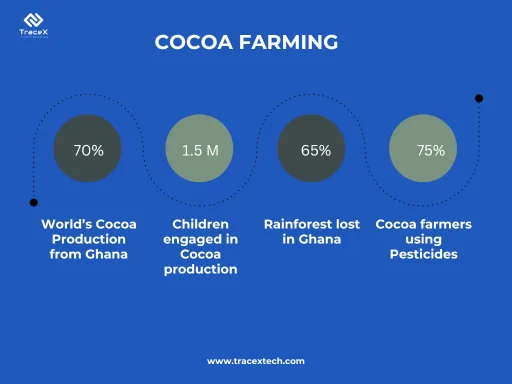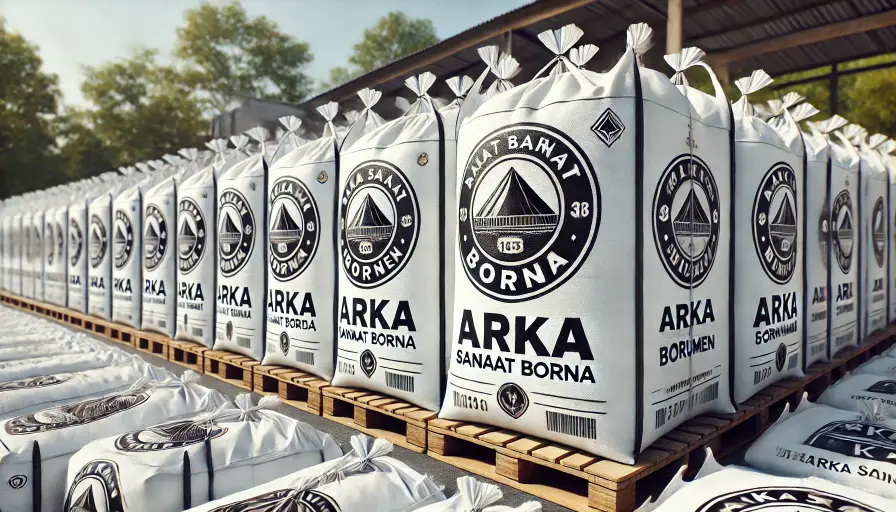
Cocoa farming is being as an industry in Ghana
Cocoa farming in Ghana
Cocoa farming in Ghana is an essential part of the country’s agriculture, with smallholder farmers growing cocoa beans in various regions. Ghana, the world’s second-largest producer of cocoa, boasts a rich history intertwined with this “food of the gods.” Lush green landscapes dotted with cocoa trees are a familiar sight, and countless Ghanaian farmers rely on this crop for their livelihoods. But beneath this seemingly idyllic scene lies a complex reality. In the face of climate change, fluctuating market prices, and challenges like child labor, Ghana’s cocoa farmers are facing a multitude of pressures.
Cocoa production stands as a significant employer in Ghana, engaging 3.2 million farmers and workers, constituting a substantial portion of the 25.3 million population. Approximately 865,000 smallholder farmers are responsible for nearly all cocoa cultivation in the nation.
Cocoa Industry in Ghana
Cocoa production significantly contributes to Ghana’s economy, with its beans ranked as the world’s best. Ghana ranks as the second-largest cocoa producer globally, after Côte d’Ivoire. The majority of cocoa output is designated for export, solidifying cocoa as Ghana’s primary commodity.
The cocoa industry in Ghana is primarily located in the forested regions of Ashanti, Brong-Ahafo, Eastern, Western, and Volta. The cultivation process entails the meticulous care of cocoa trees, the collection of their pods, the fermentation and drying of the beans, and the eventual sale to either local cooperatives or international buyers.
Cocoa farming plays a crucial role in Ghana’s economy and the well-being of its population. It plays a crucial role in generating revenue, making a substantial contribution to the country’s GDP and foreign exchange earnings. In addition, cocoa farming plays a crucial role in creating jobs for more than a million Ghanaians, contributing to the growth of rural communities and promoting economic stability. In addition to its economic significance, cocoa farming holds immense cultural value, woven into the very fabric of society, symbolizing a heritage that has been handed down from one generation to the next.
The Ghana Cocoa Board (COCOBOD) plays a central role in Ghana’s cocoa sector, undertaking essential tasks such as quality assurance, seed distribution, and marketing of cocoa beans and derivatives. Additionally, COCOBOD contributes to job creation through its “rehabilitation programs,” which involve the removal and replacement of diseased or aging cocoa trees, generating approximately 40,000 employment opportunities.
Challenges Faced by Cocoa Farmers in Ghana
- Cocoa farming in Ghana encounters various obstacles, including low productivity and yield fluctuations caused by aging cocoa trees, outdated agricultural practices, and limited access to modern farming techniques. These factors lead to varying yields, which have a significant impact on the income and livelihoods of cocoa farmers.
- The productivity issues are worsened by aging cocoa trees and declining soil fertility. A significant number of cocoa trees in Ghana are reaching maturity and need to be replaced, which is compounded by the issue of soil degradation caused by intensive farming methods, resulting in decreased yields. The sustainability of cocoa farming in Ghana is in jeopardy without effective soil management and rejuvenation efforts.
- Climate change worsens these challenges, resulting in unpredictable weather patterns, heightened pest and disease pressures, and water scarcity. Severe weather conditions like droughts and floods can have a significant impact on cocoa production, leading to disruptions in both the quantity and quality of the harvest.
- The cocoa industry continues to grapple with economic and social challenges, such as inadequate farmer incomes that perpetuate cycles of poverty and contribute to the problem of child labor. In spite of ongoing efforts to tackle these challenges, the presence of systemic inequalities and inadequate infrastructure continues to impede the advancement of sustainable cocoa production and the enhancement of farmers’ livelihoods.

resourse: tracextech.com

